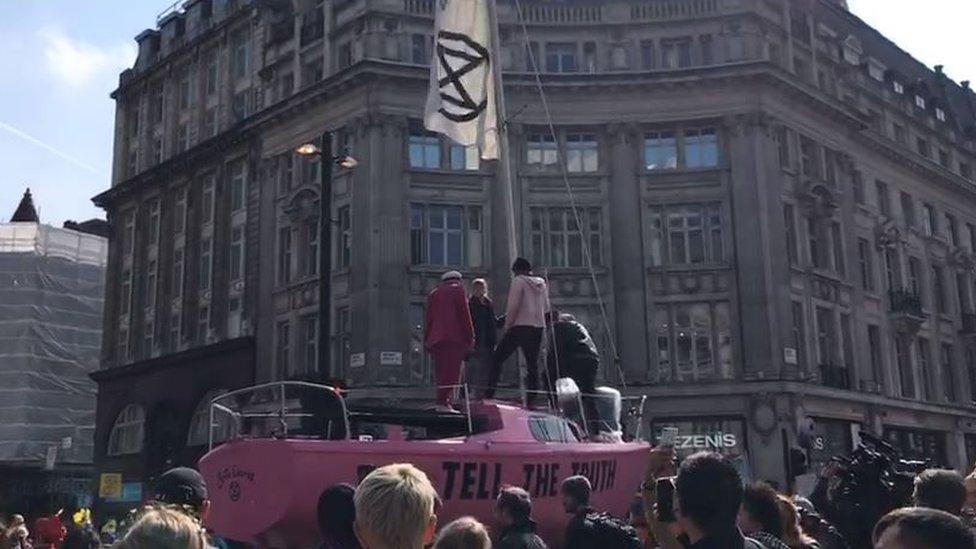HS2 underground protest: Activists 'being forced out' of tunnel
- Published
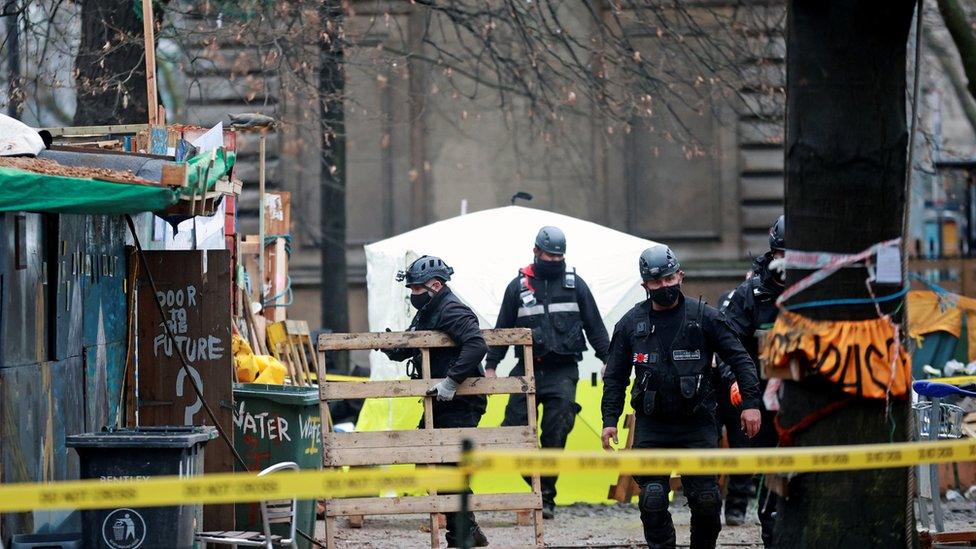
Enforcement agents have been dismantling the makeshift camp
Activists staging an underground protest in central London say an eviction team is in the process of forcing them out.
HS2 Rebellion, who are camped out at Euston Square Gardens, say the team is burrowing a vertical tunnel causing crumbs of earth to fall around them.
The activists dug tunnels to thwart their eviction from a protest camp.
HS2 declined to comment but has previously said all activities to protect the protesters would be safe.
The protesters, who said the eviction team was also digging above their heads, have refused to say how many people are underground but say they are confident they can last several more days.
Some of the group who were outside the tunnels have been arrested.
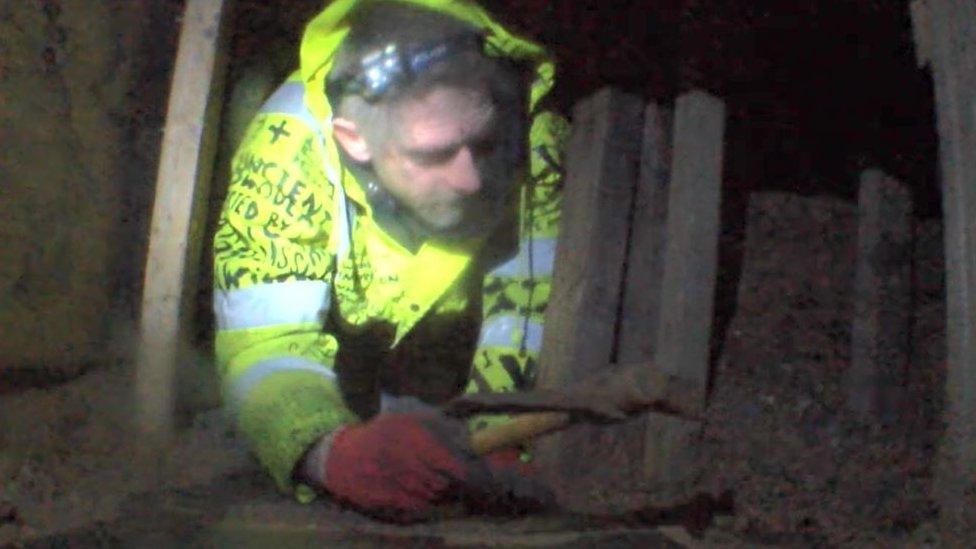
Protesters say they have no immediate plans to leave the tunnel
One protester said: "All night we've had rocks falling down on to our head through the gaps.
"They've kept us awake all night for hours and hours and hours to keep us awake and try and coax us out of the hole.
"All of the dirt is still coming down in my sleeves. It's not the most pleasant of experiences, it's pretty nasty to be fair."
In September, the group set up a Tree Protection Camp in the gardens in protest against the £106bn HS2 scheme.
The campaigners allege that the small green space near Euston station will be built over with a temporary taxi rank, before being sold to developers, as part of plans for the high-speed railway.
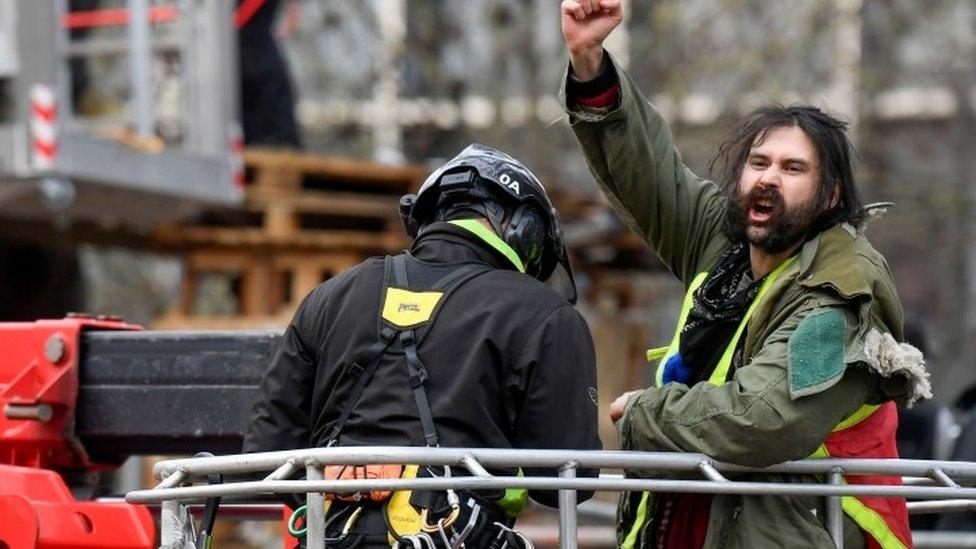
Protesters who were not in the tunnel have been arrested
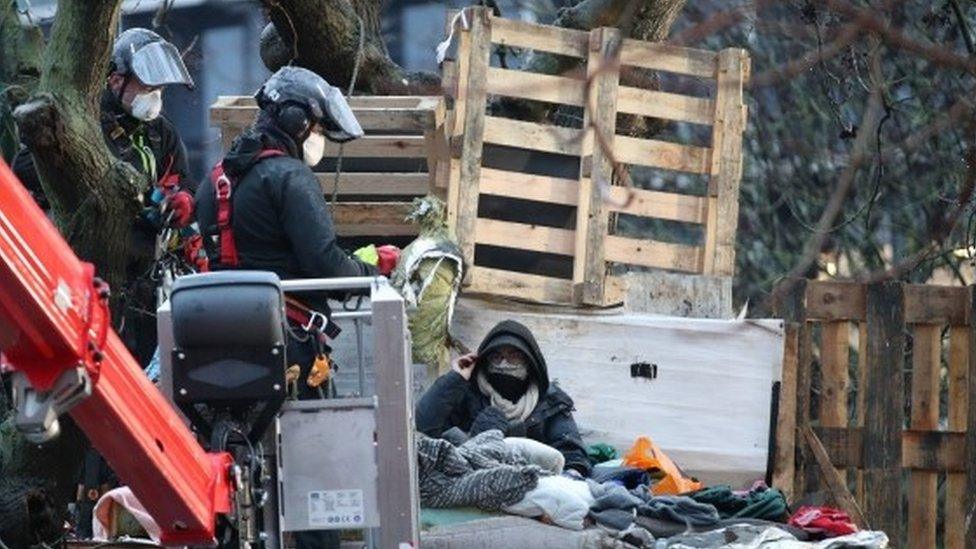
The eviction team has now removed the roof from the structure which protected the front of the tunnel.
Meanwhile, Greenpeace and Friends of the Earth have urged the government to reconsider the HS2 project, saying the coronavirus pandemic has destroyed the economic case for the high-speed rail line.
The railway was signed off by Prime Minister Boris Johnson almost a year ago before travel plummeted as a result of the virus and people turned to home working and Zoom.
The protesters say the project will prove a waste of money.
A government spokesman said HS2 would continue because and form a vital part of the UK's future infrastructure.

Roger Harrabin, BBC News Environment Analyst:
Most people think of trains as being cleaner than cars and that's generally true.
But in the case of HS2, there's a new track to be carved through the countryside and that has changed the equation.
That's because of the vast quantities of carbon emitted during the construction of the line, with all its steel, and cement, and its huge construction machines.
HS2 first estimated it would take more than 100 years to repay this "carbon debt" before the line started to save CO2 - that's way beyond what UK climate targets demand.
The firm has now withdrawn that calculation, but not offered another figure.
And now there's another factor at play: the seismic shift in travel patterns following the coronavirus pandemic and the Zoom revolution.
HS2 was designed to serve increased passenger numbers. Protesters say there's such uncertainty about future travel that building the line now looks a £100bn gamble.
- Published30 January 2021

- Published29 January 2021
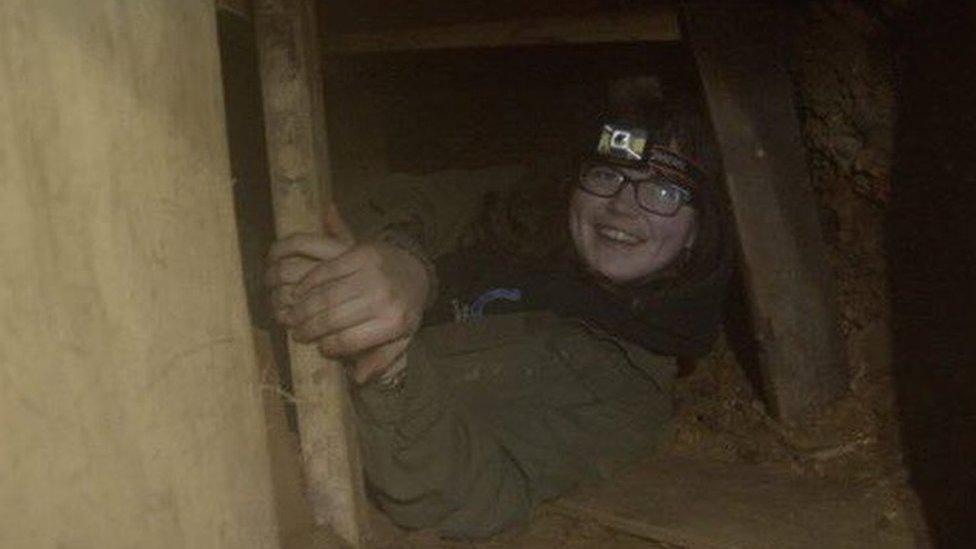
- Published26 January 2021
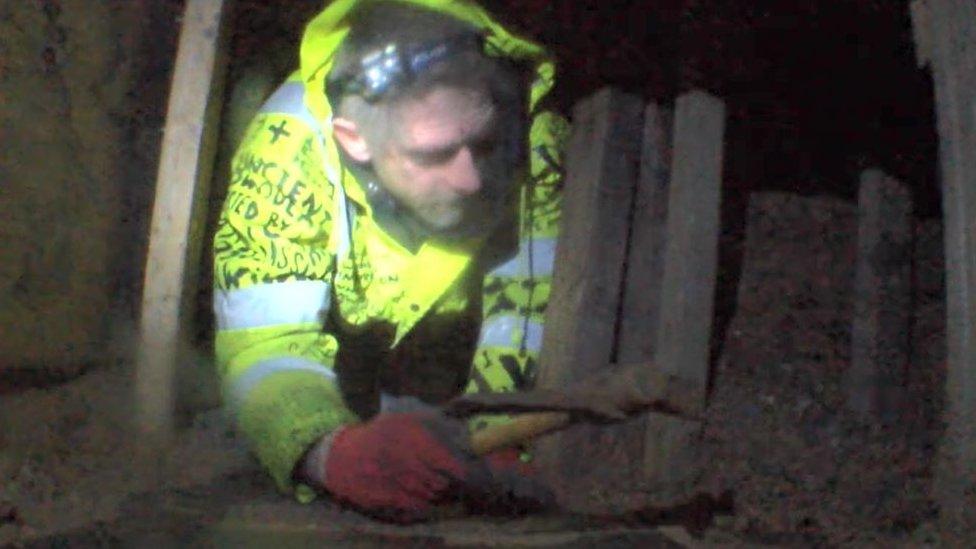
- Published28 January 2021
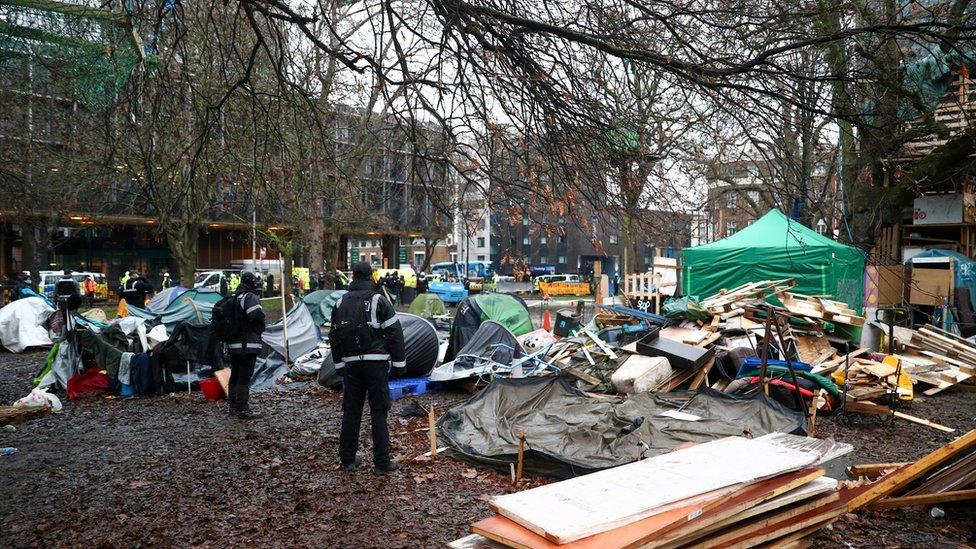
- Published16 April 2019
